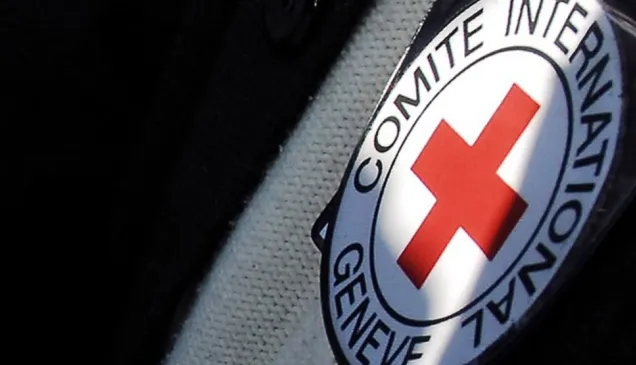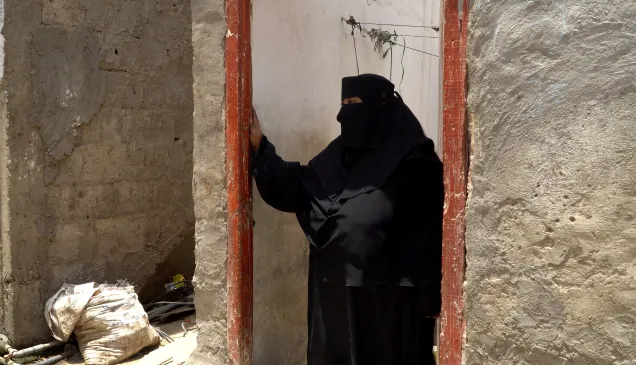Yemen: Facts and Figures, 26 March to 26 May 2015
The ICRC has been present in Yemen without interruption since 1962. Today, 223 staff, including 32 expatriates, currently work for the ICRC in Yemen, with offices in Sa'ada, Sana'a, Taiz, and Aden. An additional seven staff members support the Yemen operation from Djibouti. The organization is working to open a Yemen-dedicated logistical hub in Oman which is expected to be operational during the first week of June.
Acting as a neutral intermediary
Between 26 March and 26 May, the ICRC:
- worked with parties to broker four temporary pauses in fighting in the Sabar, Hawad Al Ashraf, 60th Road and Old Airport areas of Taiz, enabling Yemen Red Crescent Society (YRCS) teams to provide essential humanitarian services, such as management of human remains and safe access to health care;
- brokered two temporary pauses in fighting in Aden, enabling the repair of a key water pipeline serving over 500,000 people in the city's Al Arish neighbourhood;
- brokered another pause to enable ICRC and YRCS teams to retrieve 25 dead bodies from the city's Al Gomhouriah Hospital;
- assisted Moroccan authorities by acting as a neutral intermediary to transport to Djibouti the mortal remains of a Moroccan Royal Air Force pilot killed in action over Yemen; the remains were handed over to Moroccan authorities at Djibouti airport the same day (18 May).
Supporting health facilities
The health-care situation in areas directly affected by the conflict remained precarious. During this period, the ICRC:
- made more than 110 donations to more than 65 different health structures;
- provided a variety of medical supplies, including war-wounded kits, to civilian and military hospitals, as well as health centres, in ten locations (Taiz, Aden, Lajh, Abyan, Al Dalea, Al Bayda, Mareb, Sa'ada, Sana'a City and Sana'a) ;
- on 26 May, the ICRC provided medical supplies to health facilities in Shabwah and Mukalla.
Providing food and essential relief items
The ICRC provided relief supplies to some 16,000 people. This included:
- donating tarpaulins, blankets and buckets and hygiene items to almost 7,000 internally displaced people currently living in the Madynat al Shabab, Al Bouriqah, Sheikh Othman and Al Mansoura districts of Aden governorate; a further 600 particularly vulnerable people living in the Mawiah district of Taiz governorates received similar assistance;
- providing emergency food assistance to 3,600 orphans and elderly people affected by the conflict in Sanaa, Taiz, Ibb and Aden, while other institutions in Sana'a received tarpaulins, blankets and buckets and hygiene items.
Supplying fuel, water and electricity
Fuel is running low across the country, with electricity only available intermittently, most critically in hospitals and clinics. Access to fuel, electricity and water is particularly worrisome in Taiz and Aden governorates. The ICRC continues its bilateral interventions with all parties to ensure provision of fuel to hospitals, particularly in Taiz and Aden, where the situation is alarming.
Between 26 March and 26 May, the ICRC:
- donated a 200 KVA generator to Al Jumhori hospital in Sana'a;
- trucked 90,000 litres of water Al Thawra and Al Jumhori hospitals in Taiz,;
- working closely with the Aden Water Board, supported the rehabilitation of the local water network and repaired damaged pipelines, helping to provide drinking water to over 500,000 people;
- installed 21submersible pumps in mosques in Aden, providing clean water for an additional 168,000 people;
- provided 45,000 litres of fuel to the Aden Water Board to keep it operating.
Enhancing the protection of civilians and re-establishing family links
In efforts to enhance the protection of civilians affected by the conflict, ICRC protection teams conducted eight field visits and private interviews with people living in areas impacted by airstrikes. Locations included Faj Attan, Saawan, Yarim, Al-Nahda, Hasabha, Nouqum, and Madina Al-Libiya.
The ICRC distributed over 400 Red Cross messages for migrants and refugees from Somalia, Ethiopia and Eritrea living in Yemen, helping them to remain in contact with loved ones in their home countries. It also facilitated two video-conference calls between Yemeni detainees held at Guantanamo Bay and their family members in Yemen.
Amidst ongoing hostilities, the ICRC intervened bilaterally with all parties to the conflict inside and outside Yemen to remind them of their obligations under international humanitarian law.
Working with the Yemen Red Crescent Society
The ICRC worked closely with the YRCS to assist civilians in need across the country.
In particular, the ICRC:
- provided assistance to YRCS emergency response teams operating out of 16 currently active branches working in extremely challenging environments;
- supported YRCS volunteers and staff in transferring 543 wounded people to medical facilities, retrieving 173dead bodies and providing on-the-spot treatment for 234 wounded civilians.



